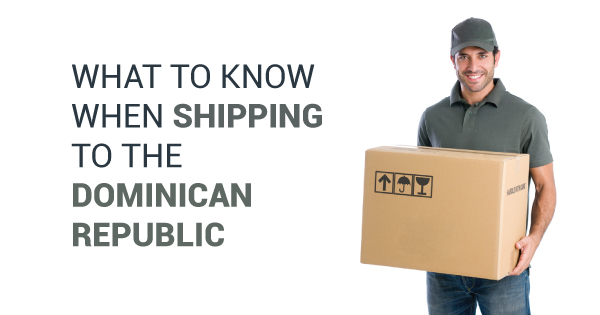What To Know When Shipping To The Dominican Republic

The Dominican Republic is quickly proving itself as one of the most lucrative trading countries in the world, moving beyond a simple reputation for attractive beaches and crystal blue waters. While the country’s top exports include gold, rolled tobacco, and medical instruments, there are many opportunities to send your goods to the island nation. If you’re looking to work with shipping companies to Dominican Republic, know these basics about the country’s importing process.
What The Dominican Republic Imports
The Dominican Republic came in as the 76th largest importer in the world in 2016, with a total of $17.5 billion imported. This number situates the Dominican Republic as a significant player in the international trading game. This is especially true for the United States, which is the Dominican Republic’s number one importer and exporter. Whether you’re working with freight forwarders in Miami and shipping companies to Dominican Republic or going through other means of international freight shipping, know these top imports:
- Refined Petroleum
- Cars
- Petroleum Gas
- Crude Petroleum
- Packaged Medicaments
- Jewelry
- Corn
- Other Plastic Products
Prohibited Goods
Just like any country, the Dominican Republic has a list of prohibited goods that you cannot export to the country. These goods are likely prohibited because of questions of legality or in the interest of safety for everyone involved in the shipping process. If you’re looking to ship goods to the Dominican Republic, be sure to check this list beforehand so that you don’t run into issues at the border.
- Seeds
- Tea
- Coffee and coffee samples
- Animal products and animal skins
- Cotton and cotton seeds
- Military equipment
- Radar and radio equipment
- Computer components, parts, and software
- Soil samples
Taxes And Tariffs
Beyond lists of what you can and cannot ship to the Dominican Republic, you will need to know about any taxes or tariffs you need to pay on your imports. If you’re working with shipping companies to Dominican Republic and freight forwarders, you likely won’t have to worry about the details of these charges, but you will want to have an idea of what you’re paying for. Keep additional charges in mind too, such as speedier delivery. In many instances, over night or two-day delivery can be 50% or more than the usual delivery fee.
Exporters from the United States do get impressive advantages in tariff charges because of the Dominican Republic’s membership in CAFTA-DR. Most U.S. exports are entering duty free into the Dominican Republic, meaning that they pay a tariff of zero percent. The luxury tax, a consumption tax for luxury imports or goods deemed “non-essential”, can range anywhere from 15% to 60% and is not reduced by CAFTA-DR.
Knowing these rules and regulations before you send goods to the Dominican Republic can save you from endless headaches during the process. Follow the rules and you’ll have successful business with the Dominican Republic.
